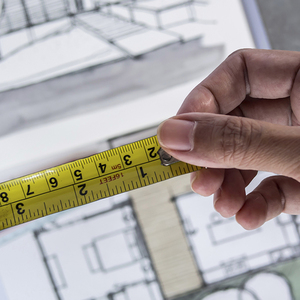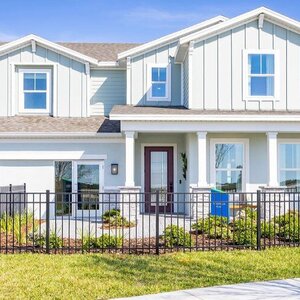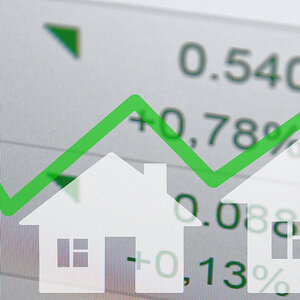The WPJ
THE WORLD PROPERTY JOURNALReal Estate Facts Not Fiction
Residential Real Estate News

Builder Confidence in U.S. Holds Steady in March
Residential News » Washington D.C. Edition | By Michael Gerrity | March 18, 2019 11:58 AM ET
According to the latest National Association of Home Builders/Wells Fargo Housing Market Index, U.S. builder confidence in the market for newly-built single-family homes held steady at 62 in March 2019.
"Builders report the market is stabilizing following the slowdown at the end of 2018 and they anticipate a solid spring home buying season," said NAHB Chairman Greg Ugalde, a home builder and developer from Torrington, Conn.
"In a healthy sign for the housing market, more builders are saying that lower price points are selling well, and this was reflected in the government's new home sales report released last week," said NAHB Chief Economist Robert Dietz. "Increased inventory of affordably priced homes - in markets where government policies support such construction - will enable more entry-level buyers to enter the market."
However, affordability still remains a key concern for builders. The skilled worker shortage, lack of buildable lots and stiff zoning restrictions in many major metro markets are among the challenges builders face as they strive to construct homes that can sell at affordable price points.
Derived from a monthly survey that NAHB has been conducting for 30 years, the NAHB/Wells Fargo Housing Market Index gauges builder perceptions of current single-family home sales and sales expectations for the next six months as "good," "fair" or "poor." The survey also asks builders to rate traffic of prospective buyers as "high to very high," "average" or "low to very low." Scores for each component are then used to calculate a seasonally adjusted index where any number over 50 indicates that more builders view conditions as good than poor.
The HMI component charting sales expectations in the next six months rose three points to 71, the index gauging current sales conditions increased two points to 68, and the component measuring traffic of prospective buyers fell four points to 44.
Looking at the three-month moving averages for regional HMI scores, the Northeast posted a five-point gain to 48, the South was up three points to 66 and West increased two points to 69. The Midwest posted a one-point decline to 51.
"Builders report the market is stabilizing following the slowdown at the end of 2018 and they anticipate a solid spring home buying season," said NAHB Chairman Greg Ugalde, a home builder and developer from Torrington, Conn.
"In a healthy sign for the housing market, more builders are saying that lower price points are selling well, and this was reflected in the government's new home sales report released last week," said NAHB Chief Economist Robert Dietz. "Increased inventory of affordably priced homes - in markets where government policies support such construction - will enable more entry-level buyers to enter the market."
However, affordability still remains a key concern for builders. The skilled worker shortage, lack of buildable lots and stiff zoning restrictions in many major metro markets are among the challenges builders face as they strive to construct homes that can sell at affordable price points.
Derived from a monthly survey that NAHB has been conducting for 30 years, the NAHB/Wells Fargo Housing Market Index gauges builder perceptions of current single-family home sales and sales expectations for the next six months as "good," "fair" or "poor." The survey also asks builders to rate traffic of prospective buyers as "high to very high," "average" or "low to very low." Scores for each component are then used to calculate a seasonally adjusted index where any number over 50 indicates that more builders view conditions as good than poor.
The HMI component charting sales expectations in the next six months rose three points to 71, the index gauging current sales conditions increased two points to 68, and the component measuring traffic of prospective buyers fell four points to 44.
Looking at the three-month moving averages for regional HMI scores, the Northeast posted a five-point gain to 48, the South was up three points to 66 and West increased two points to 69. The Midwest posted a one-point decline to 51.
Sign Up Free | The WPJ Weekly Newsletter
Relevant real estate news.
Actionable market intelligence.
Right to your inbox every week.
Real Estate Listings Showcase
Related News Stories
Residential Real Estate Headlines
- Las Vegas Area Home Prices Uptick 4.3 Percent Annually in March
- Single-Family Rent Growth in U.S. Trends Upward in 2025
- U.S. Mortgage Rates Tick Down Post Trump Tariffs Commencement
- President Trump's 'Liberation Day' Tariffs Potential Impact on the U.S. Housing and Mortgage Markets
- Baby Boomers Biggest Cohort of U.S. Home Buyers in 2025 as Millennials Decline
- U.S. Monthly Housing Payments Hit Record High in 2025
- U.S. Pending Home Sales Uptick in February
- Global Prime Residential Rent Slowdown Continued in Late 2024
- Ireland Home Price Inflation Hits 8 Year High in Early 2025
- Existing Home Sales in America Uptick in February
- Great Miami Area Residential Sales Decline 15 Percent Annually in February
- Mortgage Rates Uptick in Mid-March, Ending 9-Week Decline in U.S.
- World Property Ventures Builds the Future of Real Estate with New Funding Round
- U.S. Builder Sentiment Declines Amid Economic Uncertainty and Rising Costs
- Black Homeownership Rates in U.S. Enjoy Largest Annual Increase of All Racial Groups
- Wealthy Renters Are Taking Over More of the U.S. Rental Market
- If U.S. Congress Does Not Extend NFIP Soon, Thousands of Daily Home Closings Impacted
- U.S. Mortgage Applications Spike 11 Percent in Early March
- Greater Palm Beach Area Residential Sales Rise in Early 2025
- New Apartments in U.S. Are Leasing at Slowest Pace on Record
- U.S. Mortgage Rates Drop to 4 Month Low in March
- Overall U.S. Mortgage Delinquency Rates Dip in December
- New Tariffs on Canada, Mexico to Impact U.S. Homebuilder Input Costs
- Monaco's Property Market: A Tale of Two Cities
- U.S. Home Purchase Cancellations Surge, 1 in 7 Sales Getting Canceled
- U.S. Pending Home Sales Hit Historic Low in Early 2025
- Greater Miami Area Residential Sales Dip in January
- Governor DeSantis Supports Ending Property Taxes in Florida
- WPV Aims to Become the Berkshire Hathaway of Real Estate Tech
- U.S. Home Sales Slump Continues in January
- Average Americans Spend 38 Percent of Monthly Income on Mortgage Payments
- Switzerland's Safe-Haven Appeal Grows with World's Wealthy Homebuyers
- U.S. Builder Confidence Rapidly Declines in February
- Las Vegas Home Sales Rise 6.7 Percent Annually in January, Condo Sales Dip
- Homebuyer Demand in America Drops to 5-Year Low in Early 2025
- Ownership More Affordable Than Renting in Most U.S. Markets
- The World's First Global Listings Service Launches, Called a GLS
- Home Prices Continue to Rise in 89 Percent of U.S. Metros in Late 2024
- Global Luxury Residential Prices Showed Gradual Improvement in Late 2024
- U.S. Construction Hiring Rate Drops to Lowest Levels in 5 Years
Reader Poll
Marketplace Links
This website uses cookies to improve user experience. By using our website you consent in accordance with our Cookie Policy. Read More





